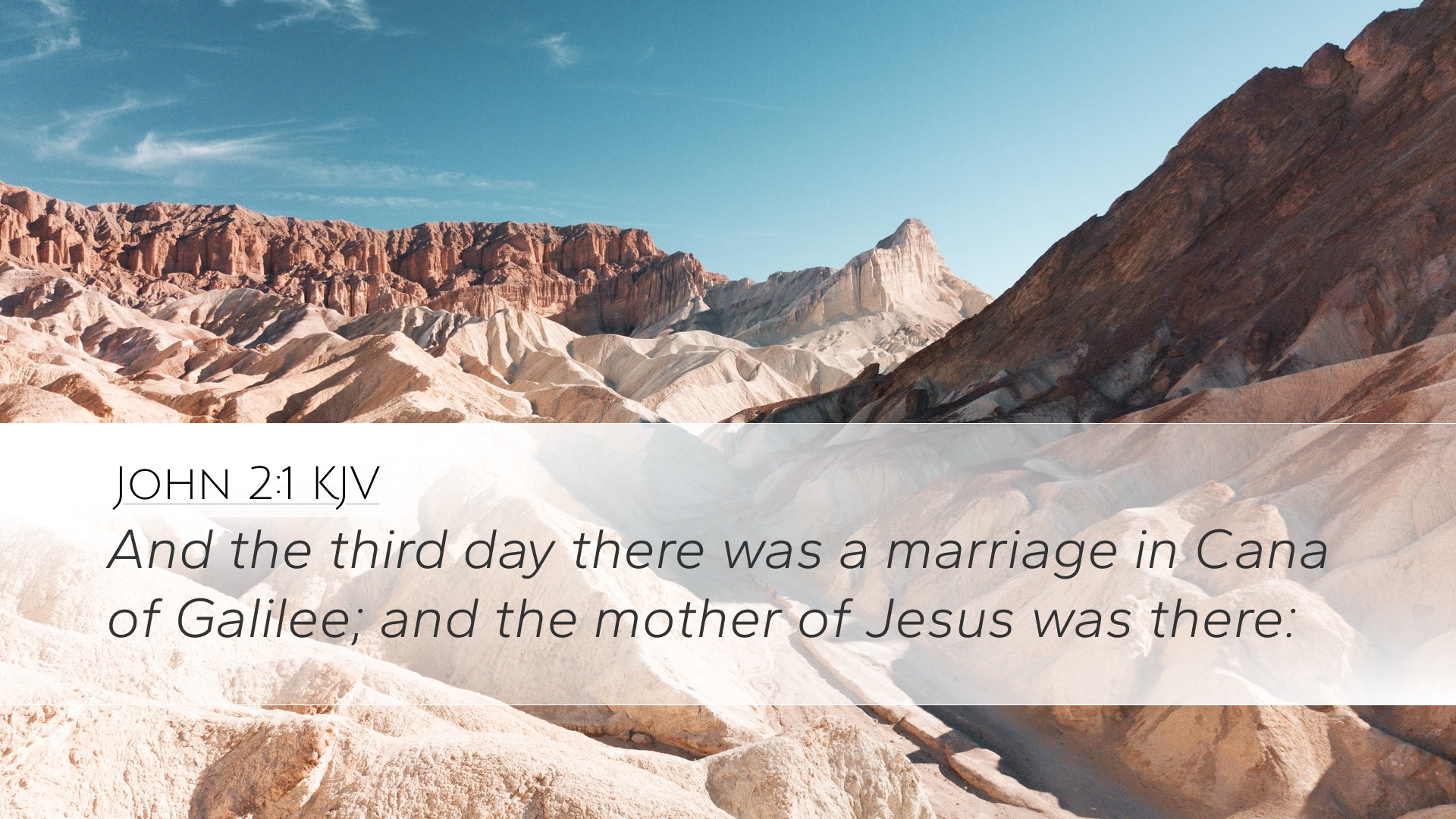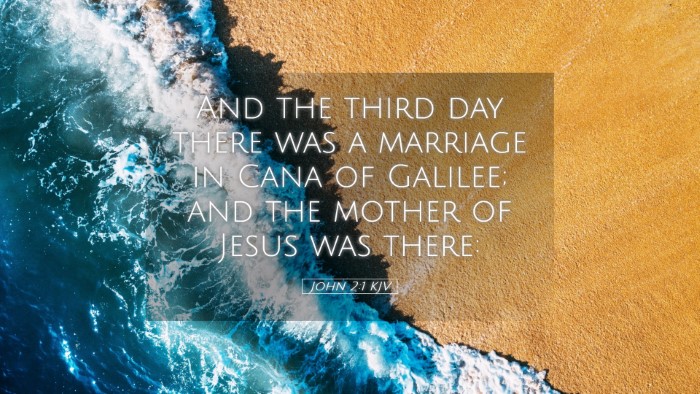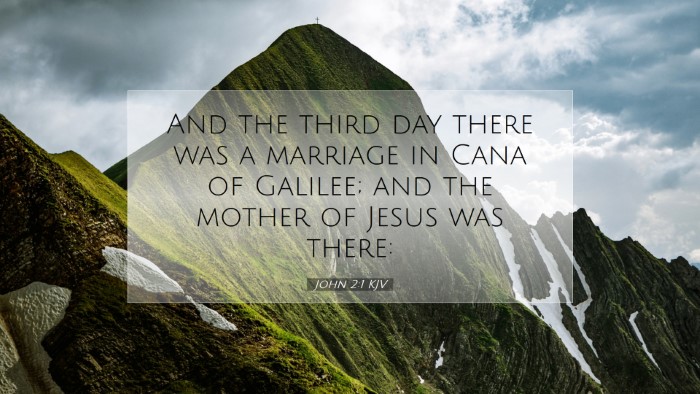Old Testament
Genesis Exodus Leviticus Numbers Deuteronomy Joshua Judges Ruth 1 Samuel 2 Samuel 1 Kings 2 Kings 1 Chronicles 2 Chronicles Ezra Nehemiah Esther Job Psalms Proverbs Ecclesiastes Song of Solomon Isaiah Jeremiah Lamentations Ezekiel Daniel Hosea Joel Amos Obadiah Jonah Micah Nahum Habakkuk Zephaniah Haggai Zechariah MalachiJohn 2:1
John 2:1 KJV
And the third day there was a marriage in Cana of Galilee; and the mother of Jesus was there:
John 2:1 Bible Commentary
Commentary on John 2:1
Verse Context: John 2:1 states, "And the third day there was a marriage in Cana of Galilee; and the mother of Jesus was there." This verse introduces a significant event in the ministry of Jesus—the miracle at the wedding in Cana—where He demonstrated His glory and revealed His divine authority.
General Insights
This event serves as the first official sign of Jesus' messianic identity, with profound implications for His mission and the nascent Christian community. It showcases not only His miraculous power but also His compassion and keen interest in human relationships and celebrations.
Theological Themes
- Significance of Weddings in Scripture: Weddings often symbolize covenant relationships, reflecting God's faithfulness. The presence of Jesus at a wedding highlights the sanctity of marriage.
- Divine Timing: The phrase "the third day" can denote both a literal timeline and the greater theological significance associated with resurrection and new beginnings.
- Presence of Mary: Mary’s role in this narrative is crucial; her intercession prompts Jesus' first miracle. This interaction speaks volumes about faith and the intimacy of familial relationships.
Commentary Insights from Notable Theologians
Matthew Henry
Matthew Henry emphasizes the significance of Jesus’ first miracle being performed at a wedding. He notes that this illustrates Christ's investment in human joy and societal norms. Moreover, Henry asserts that Jesus' willingness to perform a miracle at a moment of social need speaks to His character as one who cares about the everyday lives of people.
Albert Barnes
Albert Barnes offers a deeper understanding of the cultural context of weddings during Jesus’ time. He notes that weddings were significant public gatherings that lasted several days, and the hosts' failure to provide adequate provisions, such as wine, could result in great embarrassment. Barnes stresses that Christ's intervention not only saved the hosts from shame but also revealed His divine authority over creation, as He transformed water into wine. This suggests a deeper metaphor for His transformative power in the lives of believers.
Adam Clarke
Adam Clarke highlights the spiritual implications of this miracle. He suggests that the water turned into wine represents the Old Covenant and the New Covenant that Jesus brings. Clarke posits that just as wine is a symbol of joy and celebration, so too is the new life found in Christ. His commentary illustrates the transition from the law, represented by water, to grace, represented by wine. Clarke further notes the cultural significance of wine as a marker of joy in biblical literature, reinforcing that Jesus is the source of true joy.
Application and Reflection
For pastors and theologians, this passage invites reflection on the theme of divine intervention in our human affairs. It challenges us to consider how faith can influence the ordinary aspects of our lives and how Christ's presence transforms our burdens into blessings. This account calls for a deeper comprehension of the joy found in community gatherings and the role of Jesus in sanctifying these moments.
Conclusion
John 2:1 sets the stage for understanding not only a miracle but also the character of Christ and His relationship with humanity. By examining the insights from historical commentators, we ascertain the layers of meaning inherent in this simple yet profound event. It exhorts believers to recognize the presence of Christ in both joyous and challenging moments, affirming that He is intimately involved in providing for our needs while also celebrating the joys of life.


